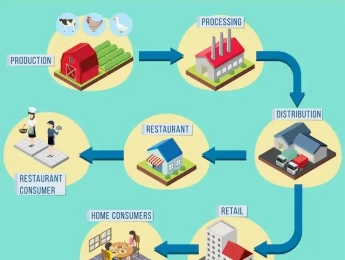At their core, a destination management executive (DME) possesses an unparalleled depth of local knowledge about the area or region they represent. Their expertise spans the intricate coordination and execution of diverse elements, ranging from program logistics to event activities. Essentially, a DME serves as a highly specialised consultant adept at overseeing every aspect of global event programming.
This course delves into the intricacies of destination management, offering participants a comprehensive understanding of how destination organisations and their various departments function.
This course explores the role of destination organisations within communities, shedding light on how these entities contribute to and enhance their surrounding areas. Participants will gain valuable insights into selling a destination to business and leisure travellers, rounding out their expertise as destination management professionals.
With a concentrated focus on vision, leadership, productivity, and the effective implementation of business strategies, this program invites professionals to embark on or advance their journey, elevating their careers and augmenting their industry knowledge, skills, and professional credibility to undertake the esteemed Certified Destination Management Executive (CDME) exam.
Upon completion of this course, participants will be able to:
- Understand professional and widely used practices in the destination management industry.
- Develop key skills in people and project management to identify continuous improvement opportunities.
- Identify risks and create recovery plans for your destination.
- Budget and manage the finances of the business.
- Manage employees across a range of different roles.
- Develop a study path to achieve destination management executive status.
- Feel comfortable and confident in the face of challenges.
- Understand what’s expected in the CDME exam.
This course is designed for anyone who intends to excel in a career in destination management. It would be especially beneficial for:
- Travel Executives
- Travel Agents
- Event Planners
- Event Managers
- Venue Managers
- Business Owners
- Marketing Executives
- Hospitality Personnel
- Hoteliers
- Destinations Entertainers
This course uses various adult learning styles to aid full understanding and comprehension. Participants will review case studies of various successful projects and destinations to understand what works well. They will also discuss, in trainer-led presentations, the elements within destination management that could present risks to the operation.
Participants will work together to understand different types of branding and marketing and how to adapt this to varied target audiences and will use their new knowledge to prepare for the CDME exam based on the internationally expected standards.
Day 5 of each course is reserved for a Q&A session, which may occur off-site. For 10-day courses, this also applies to day 10
Section 1: Your Strategic Aims as a Destination Manager
- Defining strategic aims and objectives in destination management.
- Identifying key performance indicators (KPIs) for measuring success.
- Analysing market trends and conducting destination SWOT analyses.
- Developing a clear vision and mission statement for destination management.
Section 2: Marketing & Sales for Your Destination
- Implementing marketing and promotional strategies to enhance destination visibility.
- Creating and maintaining a positive destination image and brand.
Section 3: Understanding Your Target Audience
- Enhancing infrastructure and amenities to attract and accommodate visitors.
- Implementing visitor experience programs and customer satisfaction initiatives.
Section 4: Leadership Over Your Destination
- Implementing technology solutions for efficient destination management.
- Developing strategies for remote or virtual team management in destination roles.
- Creating a diverse and inclusive team environment.
- Balancing leadership styles to suit the needs of the destination management team.
Section 5: Community Relationships & Sustainability
- Establishing sustainable and responsible tourism practices.
- Collaborating with local stakeholders and communities for shared goals.
- Adhering to environmental and cultural preservation principles.
- Addressing challenges related to seasonality and fluctuating tourism demand.
- Balancing economic growth with social and environmental considerations.
- Encouraging community engagement and participation in destination initiatives.
Section 6: Branding & Destination Positioning
- Developing partnerships with travel trade and industry associations.
- Understanding the fundamentals of destination branding.
- Identifying the unique selling points and key attributes of the destination.
- Crafting a compelling destination brand identity and story.
- Utilising visual elements, such as logos and imagery, to enhance branding.
- Implementing a consistent brand message across various marketing channels.
Section 7: Financial Management
- Legal and regulatory compliance in destination management practices.
- Crisis management and preparedness for unforeseen challenges.
- Financial risk assessment and mitigation strategies for the destination.
- Creating financial transparency and accountability in destination governance.
- Establishing a reserve fund for unexpected financial challenges.
- Analysing economic impact assessments for tourism and hospitality sectors
Section 8: Taking the CDME Exam
- Explain and implement established professional protocols.
- Understand the CDME-International Standards domains for the examination and the professional role.
- Apply strategies for test-taking and relaxation during the assessment.
Upon successful completion of this training course, delegates will be awarded a Holistique Training Certificate of Completion. For those who attend and complete the online training course, a Holistique Training e-Certificate will be provided.
Holistique Training Certificates are accredited by the British Assessment Council (BAC) and The CPD Certification Service (CPD), and are certified under ISO 9001, ISO 21001, and ISO 29993 standards.
CPD credits for this course are granted by our Certificates and will be reflected on the Holistique Training Certificate of Completion. In accordance with the standards of The CPD Certification Service, one CPD credit is awarded per hour of course attendance. A maximum of 50 CPD credits can be claimed for any single course we currently offer.
- Course Code IND15-106
- Course Format Classroom, Online,
- Duration 5 days













